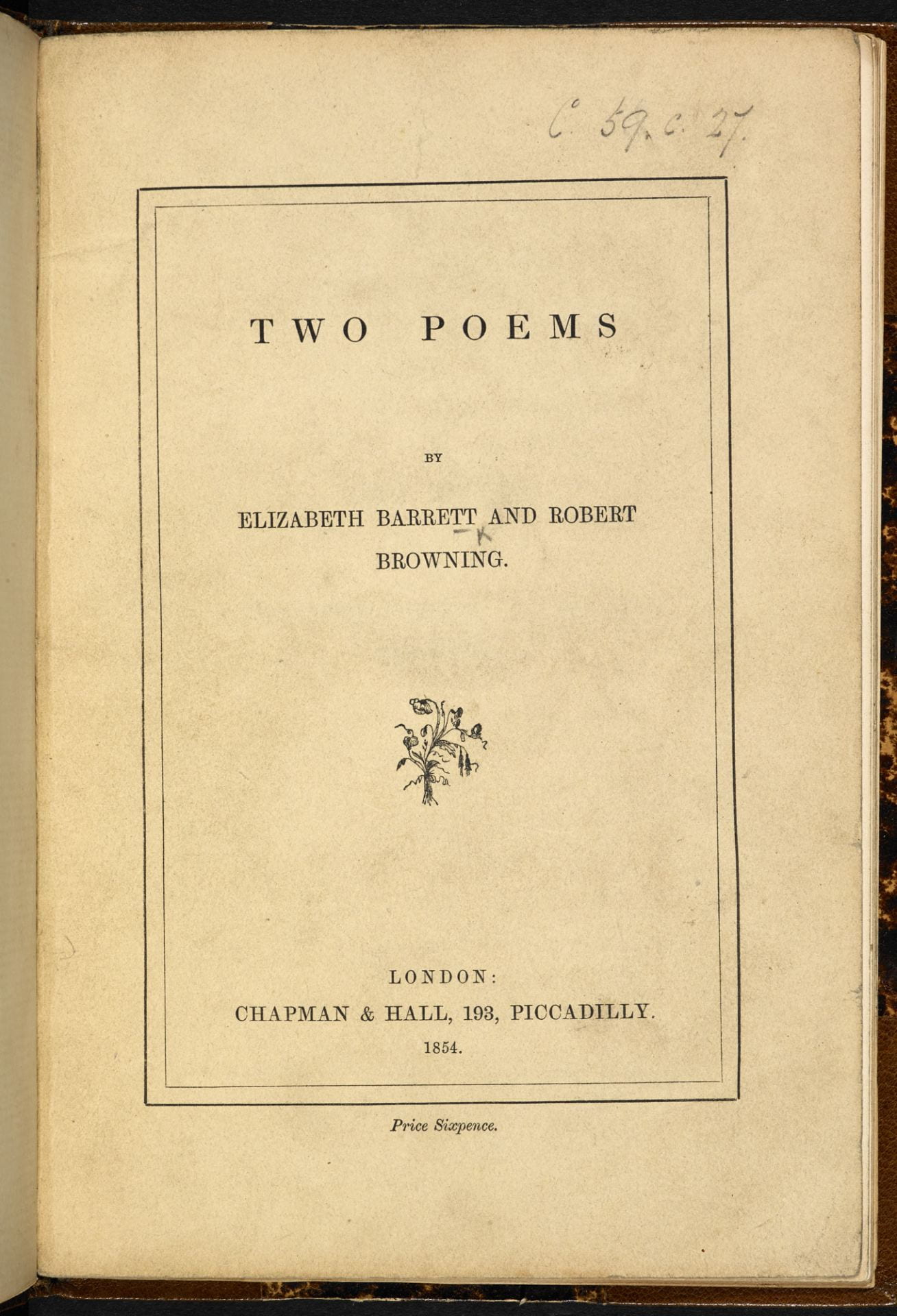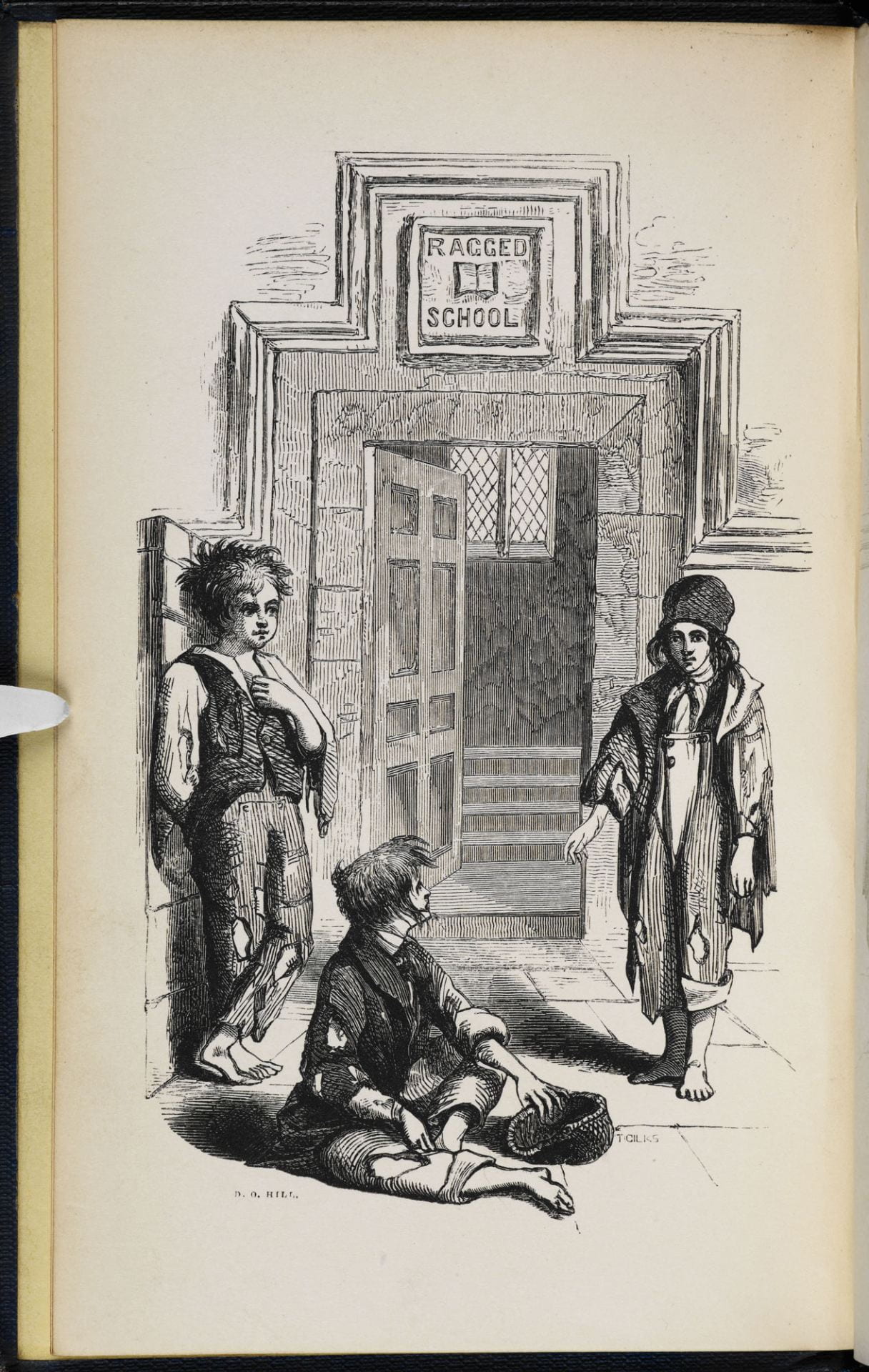“Ruins worse than Rome’s”: Elizabeth Barrett Browning’s Fight Against Environmental Inequality.
Despite hailing from a wealthy family that exploited the slave trade to build its fortune, Elizabeth Barrett Browning spent her career fighting for destitute people groups from across the world. The poet gave special attention to the poor’s quality of life and produced a number of poems that successfully worked to better the status of oppressed people.
Consider the following lines from “A Plea for the Ragged Schools of London,” one of the Two Poems written by herself and her husband Robert Browning in support of England’s nineteenth-century ragged schools, which provided free education to impoverished children.
Princes’ parks, and merchants’ homes,
Tents for soldiers, ships for seamen, —
Ay, but ruins worse than Rome’s
In your pauper men and women.
What ideas do you notice presented in these lines? Notice how Elizabeth specifically highlights the difference in available environments for different strata of society. Within her poetry, Elizabeth was highly concerned with ensuring each man, woman, and child had their proper rights and respectable living conditions; however, observing the lifestyle which Elizabeth enjoyed raises some questions in relation to the content of her poetry.
The first two pictures featured below show two different scenes relevant to Elizabeth’s life. The first photo is Hope End, her family’s home where Elizabeth grew up. The other photo depicts Bagni di Lucca, an Italian retreat where she and her husband would often spend their summers. Pay special attention to the coursing river, enclosing mountains, and pleasant homesteads.
Now, how does Elizabeth’s environment compare to the lyrics of the poem that were highlighted earlier? There appears to be a dichotomy between the message she preaches and the life that she lived. This contrast raises questions about EBB’s life and work that are worth considering, but whether it should be condemning is up to you.
Above all else, Elizabeth Barrett Browning gave a voice to those who had none and worked to better the environment of the destitute. The work she did produced real results. For example, her poem “The Cry of the Children” significantly influenced factory reform in Victorian England. Ultimately, the impact of her poetry still ripples in the laws and standards of modern society.
Exhibit created by Nick Verghese

Henrietta Barrett Moulton-Barrett's pencil drawing of Hope End, "View taken from the Other Side of the Alpine Bridge" in Sketchbook, 25 June 1831. Altham Collection, The Browning Guide H0106.
This picture depicts a drawing of Hope End created by Henrietta, Elizabeth Barrett Browning’s younger sister. Hope End was Elizabeth’s childhood home, where she lived until 1832.

Photograph of Ponte a Serraglio, Bagni Di Lucca, with inscription by Robert Bulwer Lytton, January 1858. The Browning Guide H0176.
This photo shows Bagni di Lucca, a popular vacation spot nestled within the mountainous region of Lucca, Italy. The Brownings would often travel here during the summer in order to enjoy the Italian climate.

Elizabeth Barrett Brownings' "A Plea for the Ragged School of London" in Two Poems. London: Chapman and Hall, 1854. The British Library.
This picture features a first edition print of “A Plea for the Ragged Schools of London.” The last stanza in this image displays the lines referenced in the primary narrative of the exhibit.


This is well curated